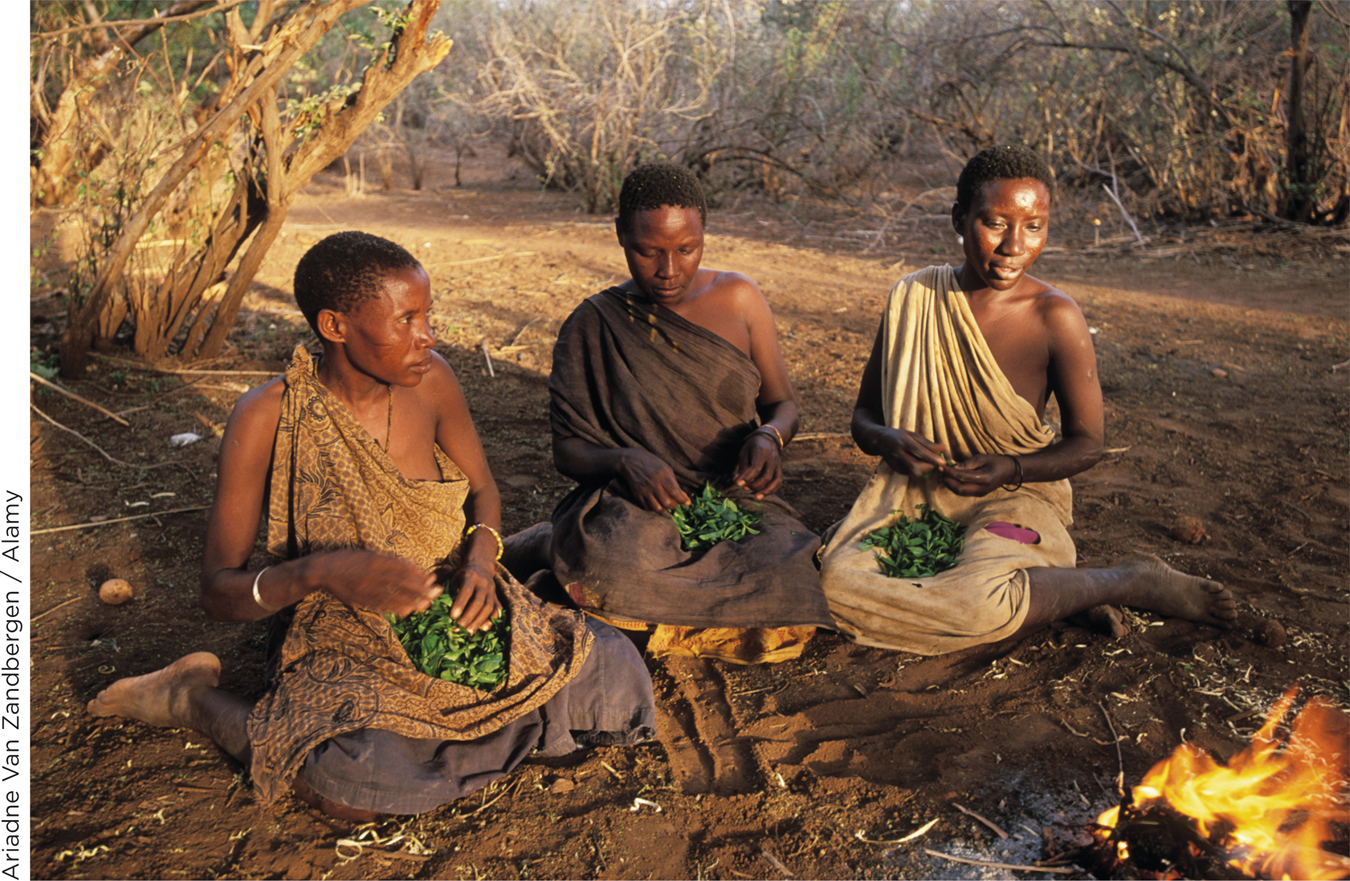Chapter 4 Introduction
120
Nature, Nurture,
and Their Interaction 4

121
CHAPTER OUTLINE
Thinking About Nature and Nurture: Two Tales
Genes, Intelligence, Poverty, and Wealth
Cultural Practices and Biological Evolution
The Moral of the Stories: Nature and Nurture Interact
Nature, Nurture, and Individual Differences
Twins and the Twin Method
The Heritability of Psychological Characteristics
What Heritability Results Do, and Do Not, Mean
Genes and Individual Development
Chromosomes, Genes, and Gene Expression
Environmental Experience: Nurture Affects Nature
RESEARCH TOOLKIT: Molecular Genetic Methods
THIS JUST IN: “Identical” Twins
Evolution and Psychology
Natural Selection
Evolutionary Psychology
CULTURAL OPPORTUNITIES: Nature, Nurture, and Cultural Beliefs
Nature, Nurture, and Diversity: The Case of Sexual Orientation
Nature, Nurture, and the Brain
Genes and Brain Structure
Environmental Experience and Brain Structure
Looking Back and Looking Ahead
THE THREE BROTHERS—
HT1 and HT2 did resemble one another psychologically. In childhood, HT1 was seen as stubborn and strong-
Once they reached their teen years, HT1 and HT2 became interested in girls. When they grew older, their sexual partners were women. Again, HM differed. One day during his childhood, in a restroom at a baseball stadium, he noticed how much he enjoyed looking at men’s genitals. In high school, he became sexually attracted to a male teacher. By his late teen years, HM knew he was gay.
The brothers’ similarities and differences raise questions we address in this chapter on nature, nurture, and their interaction. Are psychological characteristics such as personality style and sexual orientation inherited—
What’s your guess? Why, for example, do you think the brothers HT1 and HT2 were similar? Perhaps the cause was nature, that is, similar genes. If that’s what you are thinking, it’s a good guess; HT1 and HT2 are identical twins, and thus have the same genes. Their genetic similarity might explain their similar personalities and sexual orientation.

Why do you think HM differed? It doesn’t seem as if the cause was nurture, because HM and his brothers grew up in the same environment. So maybe, again, it is nature: Perhaps genetic differences between HM and his identical-
122
Are psychological qualities thus a product of nature? Or nurture? Or what? The chapter ahead will provide some clues. ![]()
IMAGINE THAT YOU HAD different genes, the molecular material in the cells of your body that is the basis of biological inheritance. Instead of the genes you inherited from your parents, suppose you had genes from some other parents, yet were raised in the same household where you actually grew up. Do you think that, psychologically, you would be the same you —with the same thoughts and feelings, abilities and potentials, hopes and fantasies?
Now imagine that instead of having different genes, you were raised in an entirely different environment: a hunter-
Likely your answers are “no” and “no.” Even before reading this chapter, you know intuitively that your psychological makeup is influenced by your biological nature —qualities you inherited genetically. You also know that your psychology is shaped by nurture —the ongoing stream of experiences you have had since your birth.
“So,” you may be asking yourself, “if I already know that nature and nurture are important, what am I going to learn from this textbook chapter on nature and nurture?” In a nutshell, you’re going to learn how to think like a psychologist about nature and nurture. Two tales about nature and nurture will show you exactly what that means.
